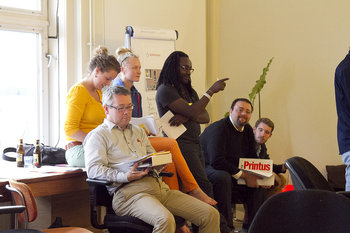|
| |
Key employees, or key personnel, are employees who have unique talents, knowledge or relationships such that their prolonged absence or exit is likely to cause substantive business disruptions or losses. In a startup or small business, it is possible for all employees to be key. In a large organization, only a few dozen employees may be key. This isn't necessarily the executive team, as regular employees can be key and executives can often depart without business disruptions. The following are common examples of key employees.Business Development Manager | Chief Architect | Chief Executive Officer (CEO) | Chief Financial Officer (CFO) | Chief Information Officer (CIO) | Chief Information Security Officer (CISO) | Chief Marketing Officer (CMO) | Chief Operating Officer (COO) | Chief Risk Officer (CRO) | Chief Technology Officer (CTO) | Controller | Creative Director | Customer Advocates (e.g. Head of Customer Success) | Customer Service Manager | Engineering Manager | General Counsel | Head of HR | Head of Recruiting | Head of Sales | Internal Auditor / Audit Manager | Managing Partner | Operations Manager | Product Designer | Product Manager | Research Director | Researcher | Revenue Manager | Salesperson | Software Architect | Software Developer | Strategy Manager | Technology Specialist |
|
Type | | Definition | Employees who have unique talents, knowledge or relationships such that their prolonged absence or exit is likely to cause substantive business disruptions or losses. | Also Known As | Key Personnel | Not To Be Confused With | | Related Concepts | |
Talent
This is the complete list of articles we have written about talent.
If you enjoyed this page, please consider bookmarking Simplicable.
© 2010-2023 Simplicable. All Rights Reserved. Reproduction of materials found on this site, in any form, without explicit permission is prohibited.
View credits & copyrights or citation information for this page.
|































